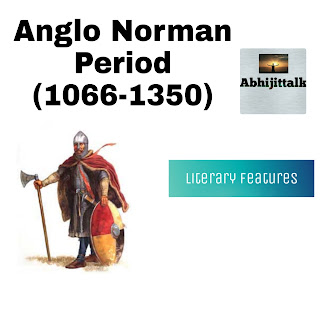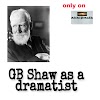Anglo-Norman Period - History of English Literature - Part 2
It is the second part of the series, History of English literature. Anglo-Norman Period comes after the ending of the Anglo Saxon Period. Middle English Period is divided into three parts and this one (Anglo-Norman) is the first one. The age of Chaucer and After Chaucer is considered as entire Middle English period. The period of this age is 1066 to 1350 as per the official reports. So, today we will discuss briefly the features and literary characteristics of the Anglo-Norman Period. But, before going into that, we will take a look at its historical background.
Historical Background: The Anglo-Norman Period was started after the Battle of Hastings in 1066. William I, the Norman king defeated King Harold and occupied Britain. Before the Norman Conquest, there was not any symbol of the French language. But, the Normans brought with them French Culture and language. And as a result, the french language interacted with the native English language (Middle English). Besides this, french was selected as the official language of that time due to political supremacy. So, the king and his officials used to communicate through the french language and the common people used to interact with their dialects. However, the Latin language was also present there in the form of religious texts since the Anglo-Saxon Period.
However, in this period, many more things happened. London became the Capital city of England and the educational epicenter as well. The two main universities, Oxford and Cambridge set up in this period, respectively 1167 and 1209.
However, French was finally rejected from the tag of Official language in 1415, when King Henry V affirmed English domination in England.
Poetry: We find three types of poems in this period. These are
Chronicles: At that time, there were a lot of chronicles. And, these are also called Historiography. Layamon’s Brut is a very popular example belonging to this genre. It included 16,000 long alliterative lines with the history of Britain, especially historiography of the old English period. However, Robert of Gloucester and Robert Manning of Brune were also famous authors.
Religious and Didactic: As we know, Religious poetry is always there in any English period. The Owl and the Nightingale and the Cursor Mundi are the supreme examples of this type of poetry. In the Owl and the Nightingale, we find a characteristic of debate beside the religious theme. For this reason, it became very much influential work for the upcoming English authors.
The Romances: We have discussed earlier (previous blog) that there was no such type of text of romances in the old English period. But, here we will find lots of romances written at this time. And it is none but the result of French influence from the Normans. But, the romances vary greatly by their subject matters. And for this reason, it can be divided into three major categories - The Matter of Britain, The Matter of Rome, and The Matter of France.
The Matter of Britain included the activities of King Arthur. Similarly, The Matter of Rome and The Matter of France dealt with respectively Alexander the Great and Charlemagne with his associates.
However, Sir Gawain and the Green Knight is considered the finest of all middle English romances.
Prose: There were no such important texts in the form of prose except The Ancrene Riwle and The Azenbite of Inwit.
Literary Characteristics:
Non-Alliterative: In the old English period, we found the texts with alliteration. But, in the Anglo-Norman Period, the feature changed due to french influence. That’s why almost every single text we find that is non-alliterative.
Rhyme and Meter: In the Anglo-Saxon period, there was no fixed meter and the poetry was unrhymed. But, here we see the opposite. Rhyming takes place in poetry and somehow a beginning of meter or syllabic pattern yet to be established.
Subject Matter: War and Religion were the major features of Anglo-Saxon verse. But, here the Romance takes place and amalgamated with the existing two themes. So, the theme of love we find in this time that is not the earthly one but the ideal one. The ideal love means the love of a soldier to his country or his native land.








6 Comments
Article was helpful... keep it up
ReplyDeleteThanks.. stay connected with our blog
DeleteGreat...
ReplyDeleteGreat article
ReplyDeleteincredible! short precise and full of info.
ReplyDeleteThanks...stay connected to our blog
Delete